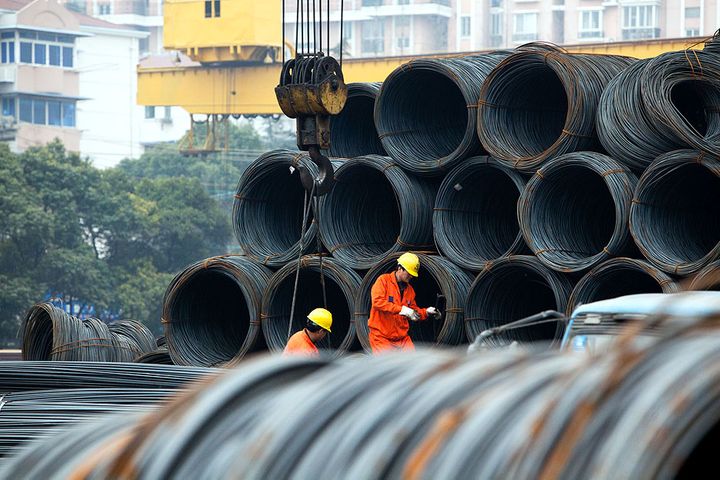 Chinese Steel Maker Hongji Ramps Up Exports to Dodge Covid-19 Slump
Chinese Steel Maker Hongji Ramps Up Exports to Dodge Covid-19 Slump(Yicai Global) March 18 -- Linqing Hongji Group, a privately owned Chinese steel sheet producer for the construction, automotive and other sectors, is bolstering exports and augmenting distribution channels to help limit the blow from the Covid-19 pandemic.
The outbreak began in January but the inflection point of sales will probably happen at the end of this month, according to the Shandong province-based firm's head, a man surnamed Jia. The firm's steel exports have gone largely unaffected and first-quarter sales overseas have been on par with the year-ago period, he added.
Chinese real estate developers are still cautious about re-opening, but Jia is not put off by the reduced construction. The first quarter is typically an off-peak season for real estate sales and construction, and demand will explode once the pandemic is under control, he believes. Developers will be conducting more work over the next several quarters and annual demand should not be much different from last year, Jia predicted, saying the domestic market could begin recovering as early as this month.
"We must make progress in 2020," Jia said. "Starting this year, we will change our sales strategy in the domestic market. We used to sell to large building owners through dealers but are now building our own channels to directly contact large domestic engineering and real estate developers to extend the downstream industry chain."
He is also excited about opportunities from fifth-generation networking, with all the new infrastructure needed to support the telecoms network that China is currently looking to expand. There are also plenty of traditional projects like railroads, highways, airports and water conservation projects, he added.
Hongji had hit a financial snag before the Chinese New Year, which began at the end of January, but it secured a low-interest CNY24 million (USD3.4 million) loan from Agricultural Bank of China. Payment from foreign orders delivered in February was received as normal and domestic sales settled in cash, so there are no cash flow concerns now, Jia said.
All of his 3,000 employees got back to work on Feb. 9 and wages and raw material prices have changed little, he added, though saying costs are higher as companies need to keep their workers safe with masks and protective clothing.
Editor: James Boynton